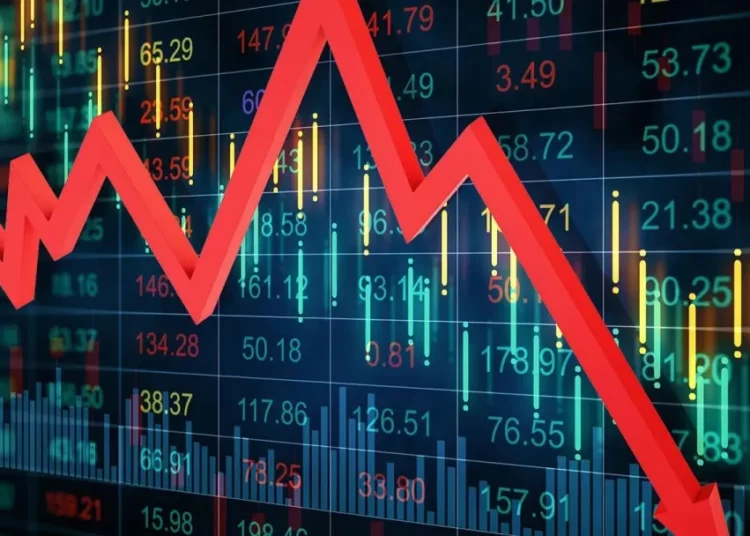Investors in the Nigerian equities market recorded a loss of about N2.673 trillion in the month of October, as increasing economic headwinds, including higher interest rates continued to affects the market.
The All-Share Index (ASI) decreased by 10.58 per cent to close at 43,839.08 points on October 31, 2022 from 49,024.16 points it closed trading on September 30, 2022. Similarly, the market capitalisation recorded a monthly loss of N2.573 trillion to close at N23.878 trillion on October 31, 2022 as against N26.451 trillion it opened trading on October 4, 2022.
Analysts attributed the decline to the selloff of top telecommunication player, Airtel Africa Plc, noting that, investors’ pessimistic disposition toward domestic equities accelerated throughout October.
They noted that the local bourse will remain lull and broadly bearish as the prospect of even higher interest rates and the depressed exchange rate weigh on investor sentiments in the medium term.
The chief executive officer, Wyoming Capital and Partners, Mr. Tajudeen Olayinka attributed the decline in market performance in October 2022 to economic headwinds and Airtel Africa Plc’ price correction.
According to him, economic headwinds and Airtel Africa price correction are both responsible for the loss we have seen so far in October. We are actually in a period of prolonged repricing of securities across markets and instruments, due to multiplicity of factors. We expect recovery to begin to take place once economy begins to look more prosperous or stable.
“For those who may wish to invest on long-term basis, the future starts today. For those who may wish to speculate for short-term benefits, they’ll need to exercise caution, as the downside risk is not completely out yet. On a balance of probability, however, prices appear good and reasonable for long-term horizon.”
The executive vice chairman of Highcap Securities Limited, Mr. David Adonri also attributed the decline in stock market to investors profit-taking in Airtel Africa that is currently adjusting to the bearish reality of the capital market.
According to him, right from the penultimate year to the election, the socio-political atmosphere becomes charged. Politicians resort to violent rhetoric and divisive tactics, which deepens the country’s socio-political fault lines, to establish a competitive edge.
“During this period, the economy becomes overloaded with money arising from excessive election spending, which spikes inflation.”
He added that, “historical antecedents indicate that on average, both equities and bonds show positive or negative performance in the penultimate year and immediately after the election.
“While the drama of general elections can make your imagination run wild, what you need to watch out for is how the unfolding scenario will affect the economy, the capital market, and your portfolio.”
The chief operating officer of InvestData Consulting Limited, Mr. Ambrose Omordion said: “despite the lingering high interest rates atmosphere, rising inflation and slowing industrial output as a result of policy changes and uncertainty around the globe, there are sectors, industries and individual stocks still seeing positive activities from traders and investors.






